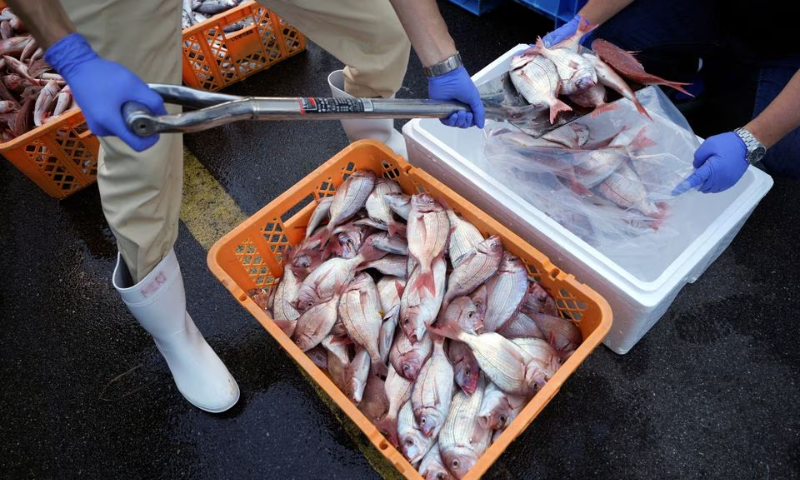OSAKA: The Group of Seven (G-7) industrial powers, comprising the United States, Japan, Germany, Britain, France, Italy, and Canada, issued a joint statement on Sunday, urging for the “immediate repeal” of import restrictions imposed on Japanese food products.
While not explicitly mentioning China, the statement referred to China’s restrictions following Japan’s decision to release treated radioactive water from the Fukushima No. 1 nuclear power plant into the Pacific Ocean.
China had imposed a comprehensive suspension of Japanese fish imports two months ago in response to Japan’s actions. Japan and the United States have criticized these curbs as unfair. Additionally, Russia recently announced a similar restriction on Japanese imports.
In the 10-page statement released after a weekend meeting in Osaka, the G-7 trade ministers expressed their concerns about the weaponization of economic dependencies and affirmed their commitment to fostering free, fair, and mutually beneficial economic and trade relationships.
G-7 Trade Ministers Express Concerns Over Control on Export of Critical Minerals
Furthermore, the statement highlighted their worries about recent control measures on the export of critical minerals. China, the world’s leading graphite producer, implemented export restrictions on certain graphite products to manage critical mineral supplies amid global challenges to its manufacturing dominance.
Read Also: Biden Might Participate G-7 In Japan & Rush Back To Join Budget Talks
The ministers also voiced their concerns regarding non-market policies, including opaque and trade-distortive industrial subsidies, and forced technology transfer. Additionally, the G-7 officials condemned Russia’s destruction of Ukrainian grain export infrastructure during its invasion and Moscow’s unilateral decision to exit talks on an agreement allowing Ukraine to export wheat and other products through the Black Sea.
Notably, the G-7 trade ministers did not directly address the Middle East crisis in their statement, but they emphasized the challenges of moving humanitarian goods across international borders during natural disasters and emergencies.

























